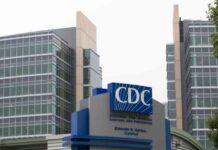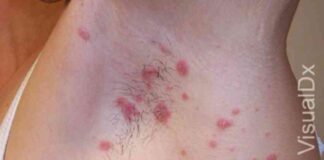The US Food and Drug Administration (FDA) recently approved a new vaccine for respiratory syncytial virus (RSV), a common respiratory virus that poses a threat to young children and older adults, especially during peak infection months in December and January. This new vaccine, called MRESVIA, is specifically designed for adults aged 60 and older, expanding the options available to combat RSV during the winter season.
Understanding RSV and Its Impact
RSV is a highly contagious virus that can affect individuals of all ages, causing symptoms similar to a common cold. It spreads through direct contact with infected individuals or indirectly through airborne particles, making it essential to practice good hygiene to prevent transmission. While most cases of RSV are mild and resolve on their own, certain groups are at higher risk of developing severe infections, including infants, older adults above the age of 65, individuals with chronic medical conditions, and those with weakened immune systems.
Symptoms of RSV typically manifest within four to six days of infection and may include a runny nose, cough, fever, wheezing, and difficulty breathing. In severe cases, RSV can lead to bronchiolitis or pneumonia, necessitating medical attention. Early diagnosis by a healthcare provider is crucial for monitoring the progression of the infection and preventing complications, especially in young children and individuals with compromised immune systems.
Prevention and Treatment Strategies
While there is no specific treatment for RSV, supportive care such as hydration and over-the-counter pain relievers can help alleviate symptoms and aid recovery. It is important to avoid administering aspirin to children and cough medicine to those under the age of four to prevent adverse effects. Regular handwashing, especially before touching one’s face, can reduce the risk of contracting RSV, as the virus can linger on surfaces for extended periods.
Vaccination is a key preventive measure against RSV, with the CDC recommending immunization for individuals aged 75 and older, as well as those between 60 and 74 who are at increased risk of severe infection. Pregnant individuals in their 32nd to 36th week are also advised to receive the ABRYSVO vaccine to protect themselves and their newborns. Vaccines are generally covered by various health insurance programs, ensuring accessibility for eligible individuals seeking to safeguard themselves against RSV during the winter months.
In conclusion, the recent FDA approval of the MRESVIA vaccine offers a valuable addition to the existing RSV immunization options available to older adults, enhancing protection against this prevalent respiratory virus. By staying informed about RSV, practicing good hygiene habits, and seeking timely medical intervention when needed, individuals can effectively mitigate the impact of this seasonal infection and safeguard their health and well-being.


















